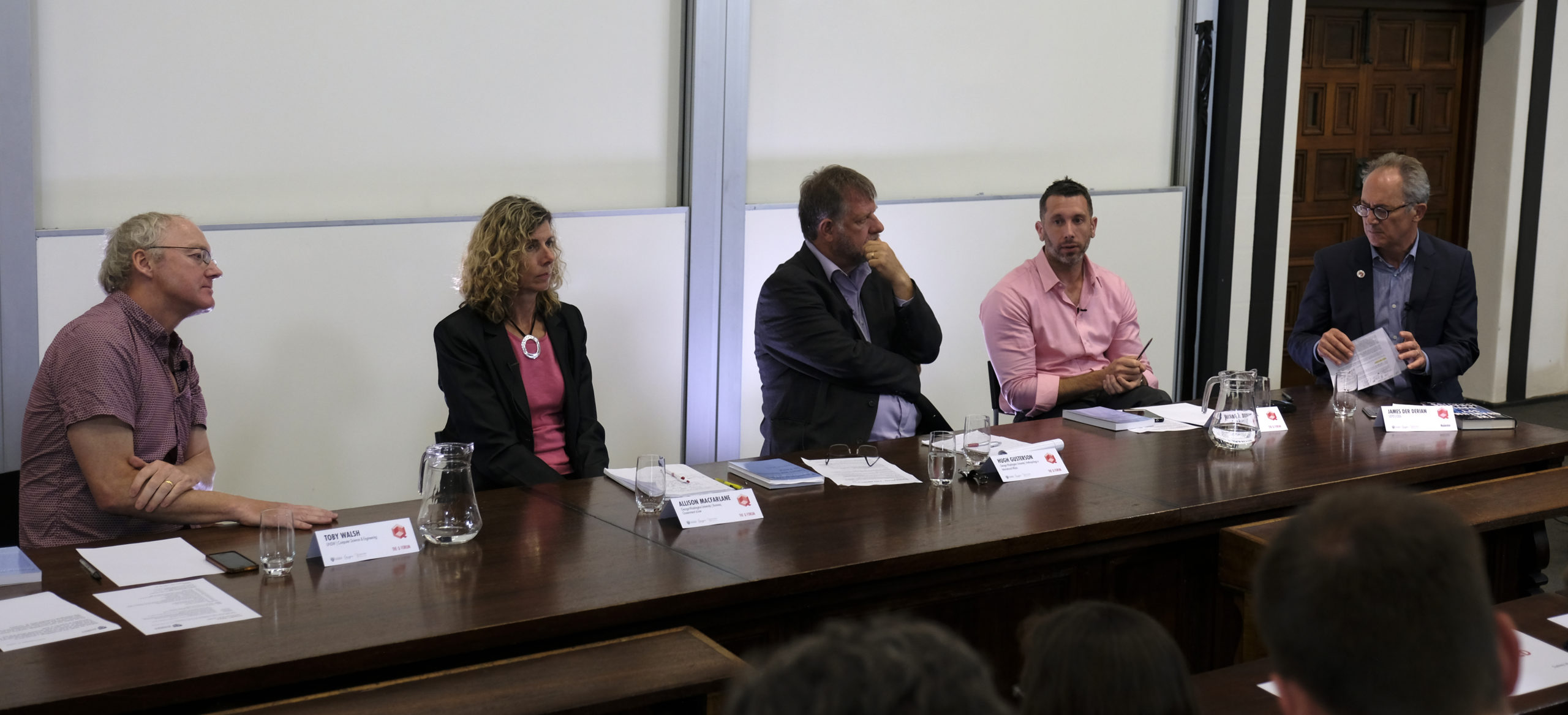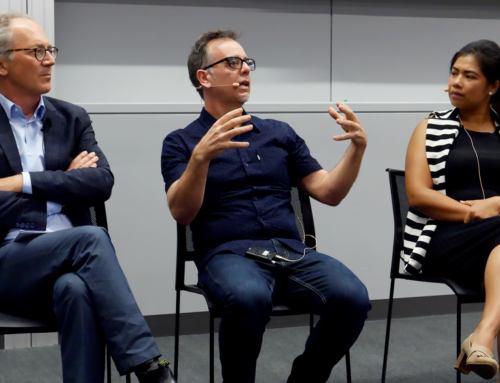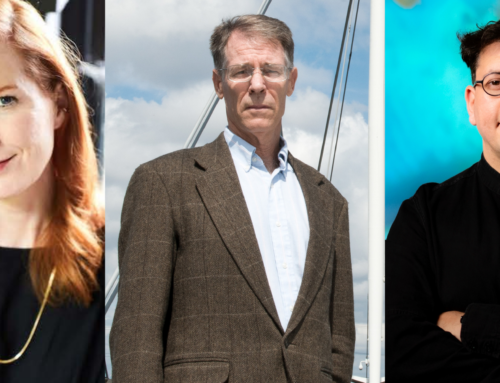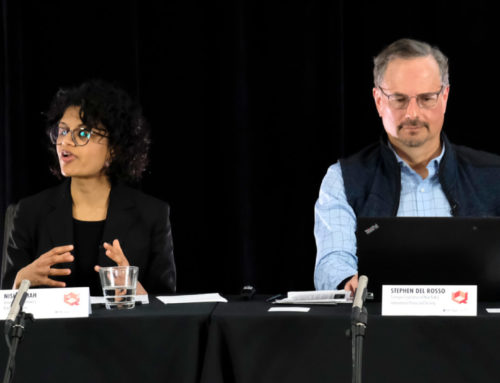Susannah Lai & Alex Vipond
The 2018 Q Forum was moderated by Professor James Der Derian and featured Michael Biercuk (USYD/Q-Ctrl), Hugh Gusterson (George Washington University), Allison Macfarlane (George Washington University) and Toby Walsh (UNSW)
As new advances in the areas of software and hardware push the prospect of a quantum computer closer and closer to actualization, this year’s Q Symposium, QC3I, came at an interesting time. From leading quantum researcher Michelle Simmons being named 2017 ‘Australian of the Year’, to the release of “The Quantum Spy”, a novel by David Ignatius that speculates on the implications of quantum technology for espionage and international relations, the question of what ‘quantum supremacy’ means for the world is gaining traction.
The opening forum of QC3I, “Strange Physics: Or how I learned to stop worrying and love the Bomb, Drones, Artificial Intelligence and Quantum Computers”, reflected these burgeoning tensions and questions. Featuring a mix of experts from various fields, the forum took place in the General Lecture Theatre at the University of Sydney, with the support of Sydney Ideas. In a break with tradition, and reflecting the growing diversity of intellectual thought surrounding ‘quantum’, this year’s forum featured a panel discussion rather than a presentation by one person.
Reflecting both the diversity of views and intellectual backgrounds of those present, as well as the current climate of uncertainty around the possibilities and future of quantum technology, the discussion covered many topics and viewpoints. Topics such as regulation of the development of quantum technologies, and whether regulation is desirable at all were robustly discussed by the panel. Professor Michael Biercuk claimed that regulation at this early stage would be pointless, even harmful, as scientists are still uncertain about the potential of quantum innovation. In contrast, Professor Allison MacFarlane, coming from the policy side of the debate, argued strongly for regulation, reflecting on past technological advances and questioning the ability of scientists to self-regulate in the absence of formal regulatory structures.
In a way, the panel’s interactions demonstrated both the challenges and the potential of interdisciplinary work in this area. People approach these issues from fundamentally different perspectives and bring very different experiences to the table, but this challenging of each other’s thoughts clearly stimulates discussion and leads people to consider points that they had not previously examined. The tension between the philosophy of neo-liberalism and tight regulation of an emerging industry was brought up, and acknowledged by the panel although the discussion was limited.
Overall, the opening panel of QC3I, was very much indicative of how the rest of the conference would proceed. Much of the discussion was tied up in the consideration of recent advances (and how rapidly they have occurred) and the societal implications of these. Even as we strive to further our understanding of the technical aspects of quantum science, a key theme of QC3I was the need to strive to improve our understanding of the impacts of this technology on our society, our world and our understanding of the limitations of humanity.







Leave a Reply